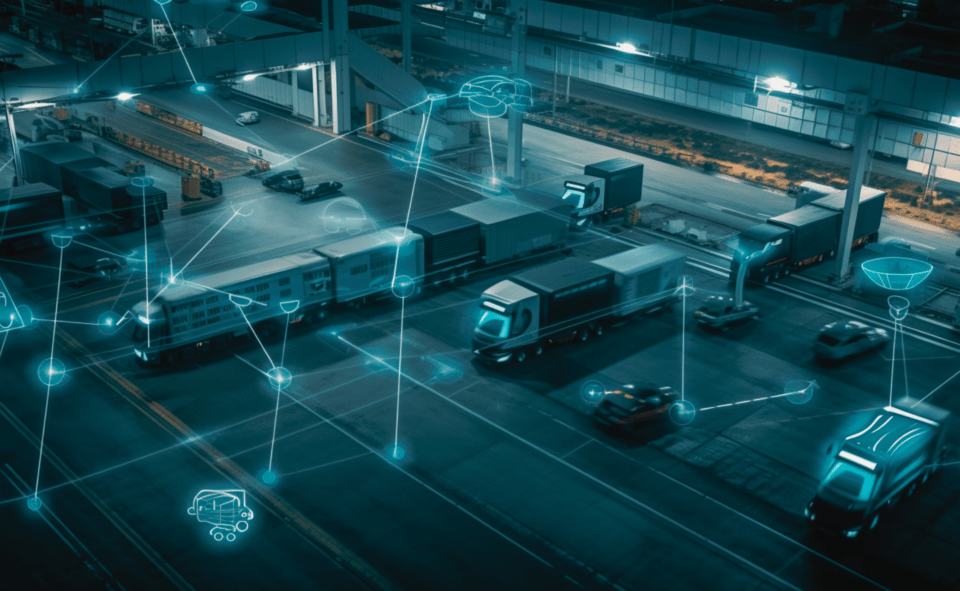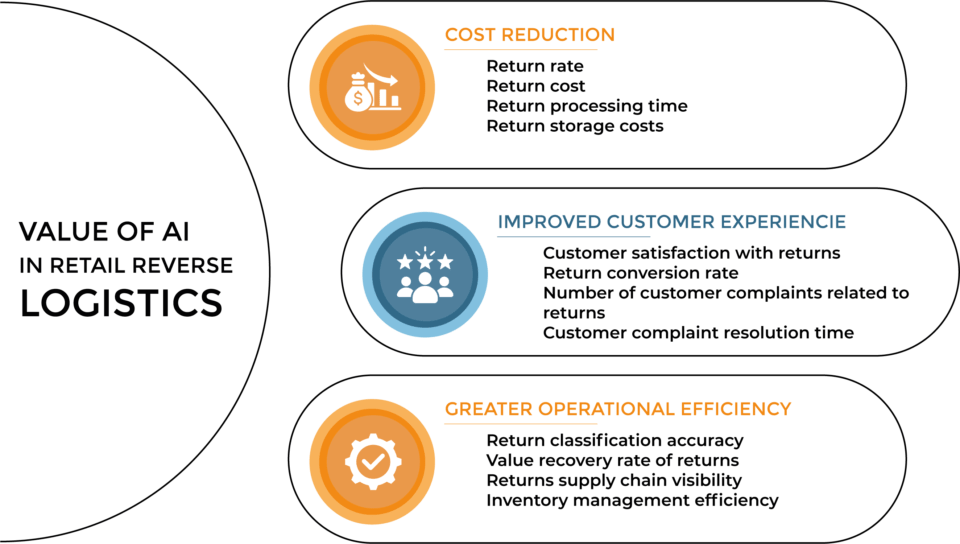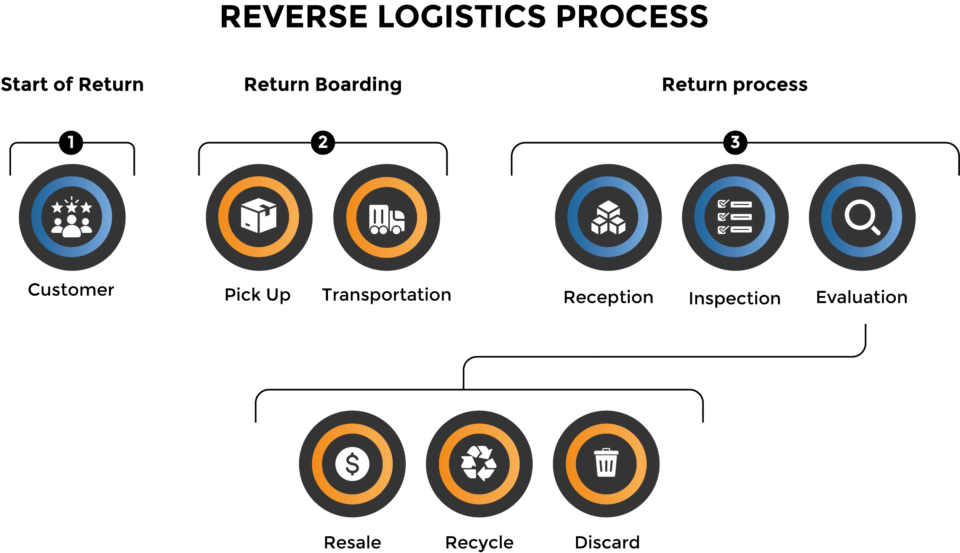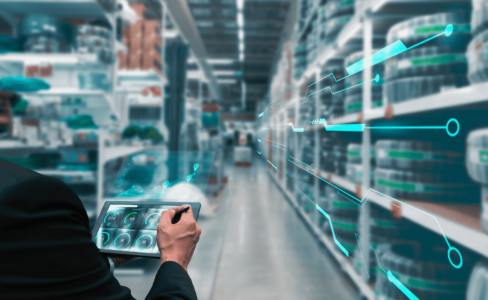As the e-commerce market expands and supply chains grow, companies must enhance their processes to enable efficient, two-way product flows in the retail value chain. Optimizing returns management and reverse logistics is essential for cost reduction, but implementing these changes can be challenging.
According to a study by Statista Consumer Insights, 46% of online purchases in Spain are returned by customers, compared to only 9% of returns in physical store sales. This statistic is even more significant given that online sales amount to around 20 million euros annually, with a significant increase expected over the next five years.
Read on to learn how AI can improve your company’s operations and reverse logistics management.

What is Reverse Logistics?
Reverse logistics involves managing returns and returning products in a supply chain efficiently. It includes activities like packaging recycling and waste management. In e-commerce, reverse logistics is crucial for sustainability and efficiency, ensuring that returned products make their way back to the distributor or manufacturer.

To optimize the supply chain and maximize product value in e-commerce, it’s important to understand the different types of reverse logistics and their specific applications in retail:
- Returns management: handling product returns from customers, implementing strategies to prevent returns, and ensuring a quick response, which significantly influences customer satisfaction.
- Reconditioning: re-manufacturing and repairing returned products for subsequent sale or reuse.
- Packaging management: reusing packaging materials to reduce waste and costs.
- Waste management: collecting and treating waste to improve environmental care and reuse products as raw materials.
- Management of unsold products: returning unsold products to the distributor or manufacturer for redistribution.
- Management of obsolete products: recycling or disposing of products that have reached the end of their useful life.
- Management of undelivered products: returning undelivered products to the point of origin for redistribution.
What advantages does AI offer in retail Reverse Logistics?
Implementing AI in returns management represents a paradigm shift in retail, affecting nearly all phases of the value chain and offering the following advantages:

What is the reverse logistics process like?
The reverse logistics process involves the flow of products from the customer or point of consumption back to the supplier or point of origin, encompassing various activities divided into three fundamental steps:
- Start of Return: When a customer initiates a return, the company starts its logistics operations in line with legal frameworks and internal policies, including refunding the customer and planning the product’s return route.
- Return Boarding: The returned product is assigned a tracking number, allowing both the company and the customer to monitor its journey back to the company.
- Return Processes: Once the product reaches the company or manufacturer, it undergoes inspection to classify it as “wrong product,” “defective product,” or “customer dissatisfaction.” Depending on the classification, products may undergo repair or optimization. Products can then follow two main paths:
- Resale: Products eligible for sale are returned to inventory for sale to other customers.
- Recycling: Obsolete or irreparable products are sent to specialized recycling areas to salvage recyclable materials.

Integrating AI into these procedures can seem overwhelming if you’ve never considered it before. However, it’s a vital step towards innovation and improving operational efficiency in any retail or wholesale business.
At baobab soluciones, we can support you in this transition. With over 13 years of experience advising companies, we help make optimal decisions and develop AI applications based on predictive analysis and Opti-AI.
Contact us, let’s take the first step to optimization together!

With the rise of e-commerce, it’s necessary for retail companies to invest in AI technologies to redefine their supply chains and maximize the value from reverse logistics, ensuring a more sustainable and profitable product life cycle.
Logistics, whether ordinary or reverse, is just one of the many applications that Opti-AI models can provide. Want to discover other opportunities to improve your business?
Download our eBook “Intelligent Retail,” where we present real cases and practical examples of how AI is transforming the sector.




